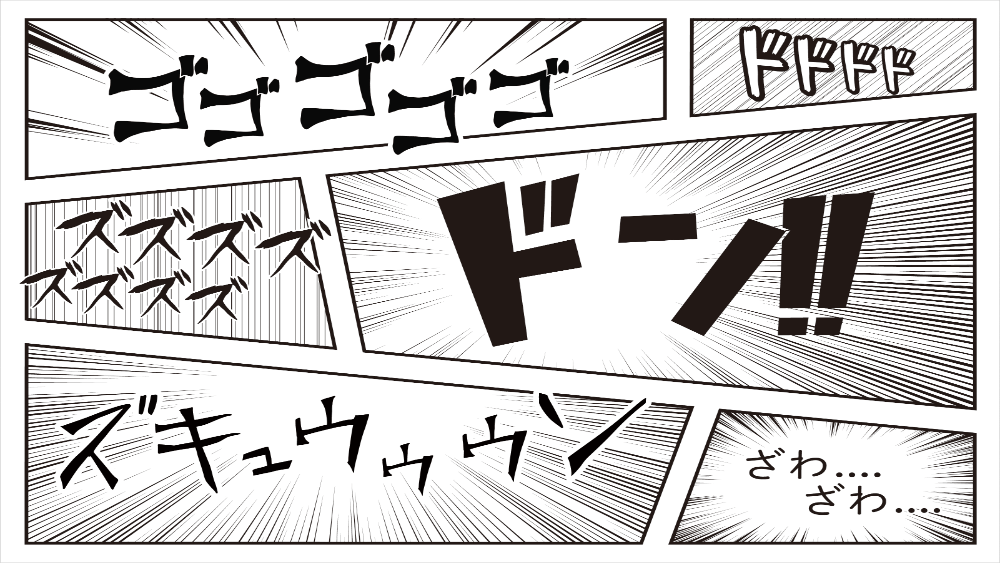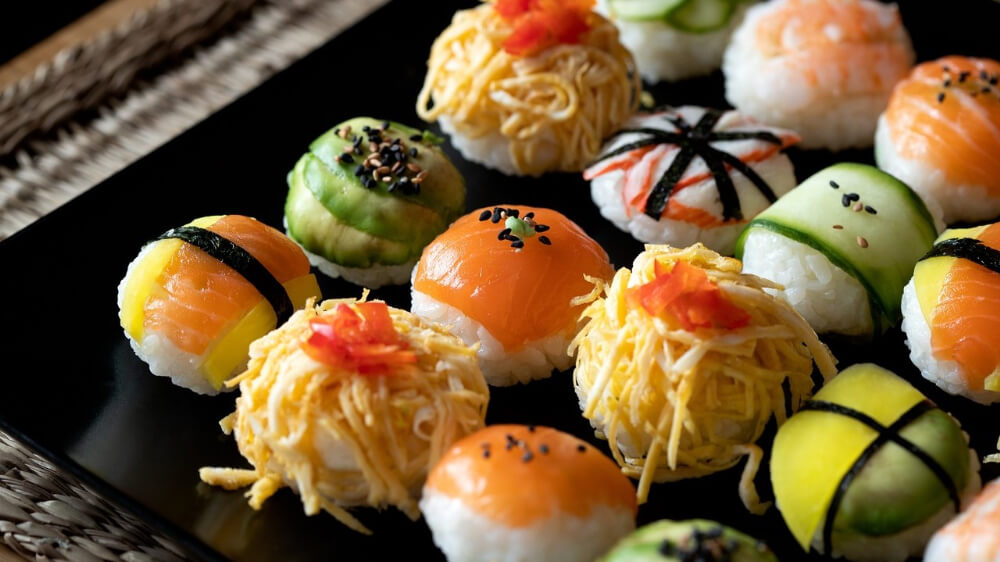Hello, everyone learning Japanese! Among the unique sounds and expressions in Japanese, onomatopoeia stands out prominently. Onomatopoeia symbolises the rich expressive power of Japanese and is widely used in everyday conversations to literary works, manga, and anime. In this article, we will introduce the types of onomatopoeia, as well as representative onomatopoeic words with their images.
Onomatopoeia in Japanese
Onomatopoeia is one of the symbolic expression forms in Japanese, referring to words that imitate natural sounds, movements, emotions, etc. Onomatopoeia is an important means to concisely convey emotions or situations that cannot be fully expressed with words alone and is frequently used in various situations.
Learning onomatopoeia helps deepen the understanding of the sound and nuances of Japanese words, enriching communication. Moreover, as it is commonly used in various contents such as Japanese manga, anime, advertisements, lyrics, etc., it becomes a crucial element for Japanese learners to understand Japanese culture and context.
On the other hand, onomatopoeia is difficult to translate directly into other languages. This is an expression deeply related to Japan’s unique culture and sensibilities, making it not directly applicable to other languages.
Types of Japanese Onomatopoeia
In Japanese, which expresses many things with onomatopoeia, there are approximately 4,500 onomatopoeic words in use. Japanese onomatopoeia can generally be classified into five types:
- Sounds of animals and human voices (Gisei-go)
- Natural sounds (Gion-go)
- States or conditions of things (Gitai-go)
- States or actions of living things (Giyoo-go)
- Human emotions (Gijoo-go)
However, some words belong to multiple groups, and there are also words that are difficult to categorise. Therefore, it is said that memorising the categories of onomatopoeia is not important.
Animal Sounds or Human Voices (Gisei-go)
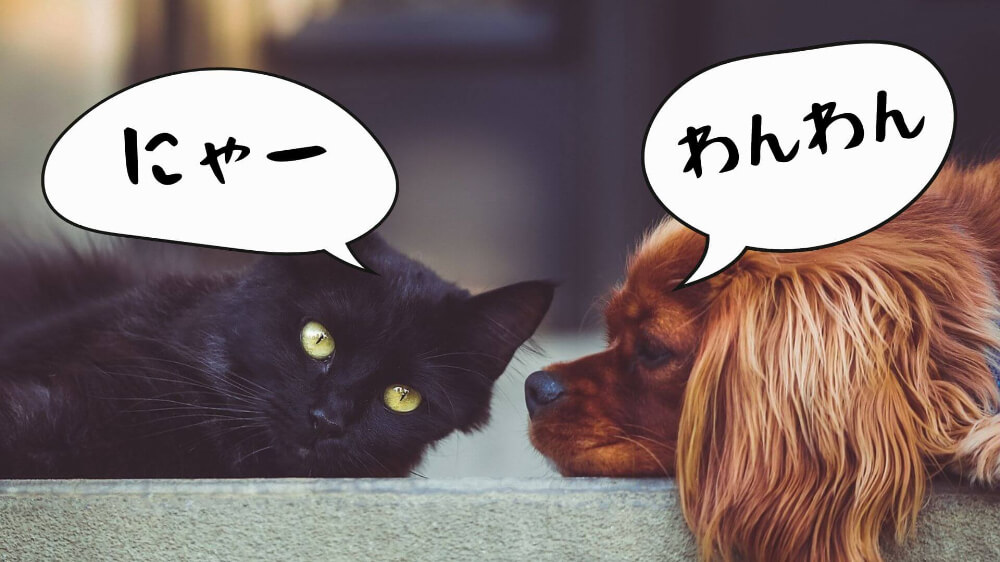
Onomatopoeia is commonly used to express animal sounds, human voices, noises, etc., and in Japanese, it is called “Giseigo“. It is frequently encountered not only in daily conversations but also in manga, anime, etc.
| Onomatopoeia | Pronunciation | Meaning |
|---|---|---|
| ワンワン | wan-wan | Barking sound of a dog. |
| ニャー | nyaa | Meowing sound of a cat. |
| コケコッコー | kokekokkoo | Crowing sound of a rooster. |
| チューチュー | chuu-chuu | Squeaking sound of a mouse. |
| アハハ | ahaha | Loud and cheerful laughter. |
| くすくす | kusukusu | Quiet, restrained laughter. |
| ゲラゲラ | geragera | Uncontrollable, loud laughter. |
| キャー | kyaa | Screaming by surprise, excitement, fear, etc. |
| ゴクゴク | goku-goku | Drinking something quickly, usually making a gulping sound. |
| エーン | een | Crying sound, typically by a child. |
Examples:
- 犬がワンワンと吠えている – A dog is barking.
- 私の冗談にみんなくすくすと笑った – Everyone chuckled at my joke.
- 俳優が登場すると、女の子達は「キャー!」と叫んだ。- When the actor appeared, girls screamed.
Natural Sounds (Gion-go)
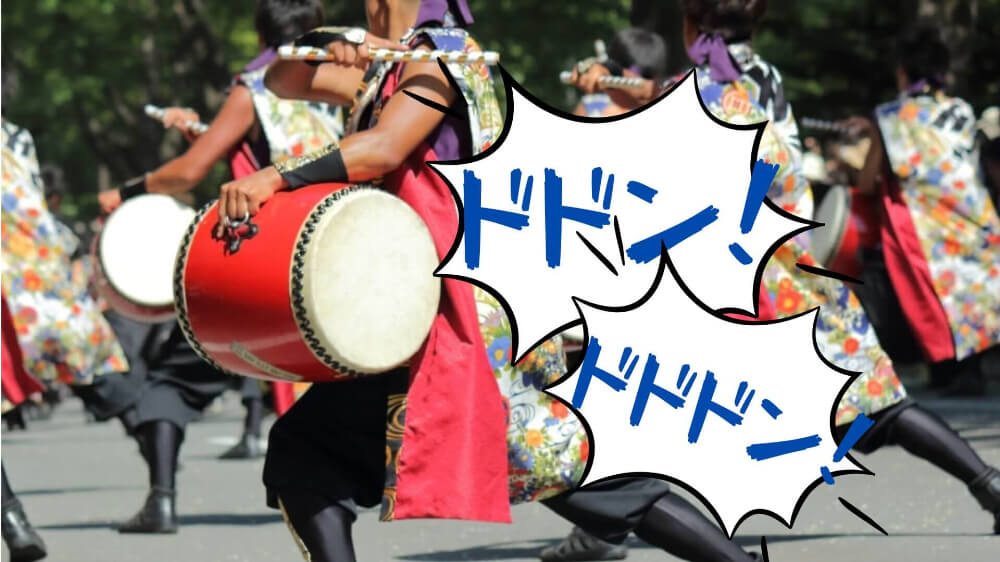
Onomatopoeia is also used to represent natural sounds, evoking beauty and atmosphere beyond what words alone can express. It is called “Gion-go” in Japanese, and frequently used in various situations such as daily conversations, literary works, poems, lyrics, etc.
| Onomatopoeia | Pronunciation | Meaning |
|---|---|---|
| ビュービュー | byuu-byuu | Whistling sound of strong wind. |
| バタン | batan | Loud banging sound of a door slamming shut. |
| プルルル | purururu | Ringing sound of a telephone or similar device. |
| ドンドン | don-don | Repeated banging or knocking sound, like on a door. |
| ゴロゴロ | goro-goro | Rolling sound of something heavy or the rumbling of thunder. |
| パチパチ | pachi-pachi | Clapping sound or crackling of a small fire. |
| ザーザー | zaa-zaa | Continuous sound of heavy rain. |
| サラサラ | sara-sara | Soft, dry rustling sound, like sand or hair. |
| ブーン | buun | Buzzing or humming sound, like a bee or a machine. |
| ガチャガチャ | gacha-gacha | Clattering or rattling sound, like keys or a machine. |
Examples:
- 今日は風がビュービューと吹いている – The wind is blowing loudly today.
- 風でドアがバタンと閉まった – The door slammed shut in the wind.
- その時、プルルルと電話がなった – At that moment, the phone rang.
States or Conditions of Things (Gitai-go)
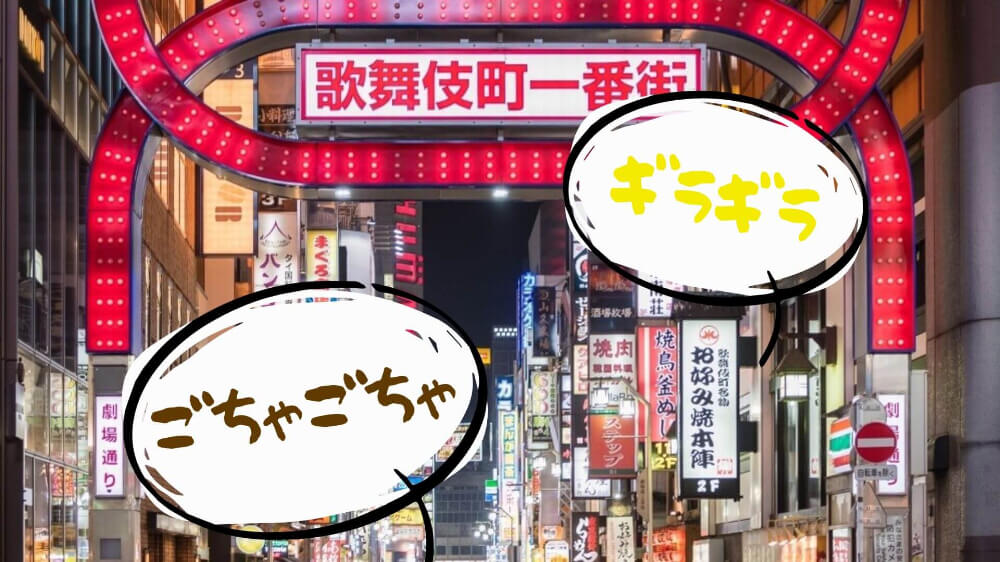
Onomatopoeias that express the state or condition of things are called “Gitai-go“. This type of onomatopoeia can be used even when there is no actual sound, helping convey sensory impressions.
| Onomatopoeia | Pronunciation | Meaning |
|---|---|---|
| キラキラ | kira-kira | Sparkling or twinkling, like stars or glitter. |
| ピカピカ | pika-pika | Bright and shiny, like a polished surface or new item. |
| ざらざら | zara-zara | Rough or coarse texture, like sandpaper or gravel. |
| つるつる | tsuru-tsuru | Smooth and slippery, like a polished floor or wet surface. |
| ふわふわ | fuwa-fuwa | Soft and fluffy, like cotton or clouds. |
| ごちゃごちゃ | gocha-gocha | Messy or cluttered, like a disorganized room. |
| ぐちゃぐちゃ | gucha-gucha | Squishy and messy, like something wet and mashed. |
| ぼろぼろ | boro-boro | Worn out or falling apart, like old clothes or paper. |
| ヌルヌル | nuru-nuru | Slimy or slippery, like wet soap or a slimy surface. |
| ベタベタ | beta-beta | Sticky or tacky, like glue or sweat. |
Examples:
- 外で何かがキラキラと光っている – Something is sparkling outside.
- このビーチの砂はザラザラしている – The sand on this beach is rough.
- 雨で地面がぐちゃぐちゃだ – The ground is muddy from the rain.
States or Actions of Living Things (Giyoo-go)
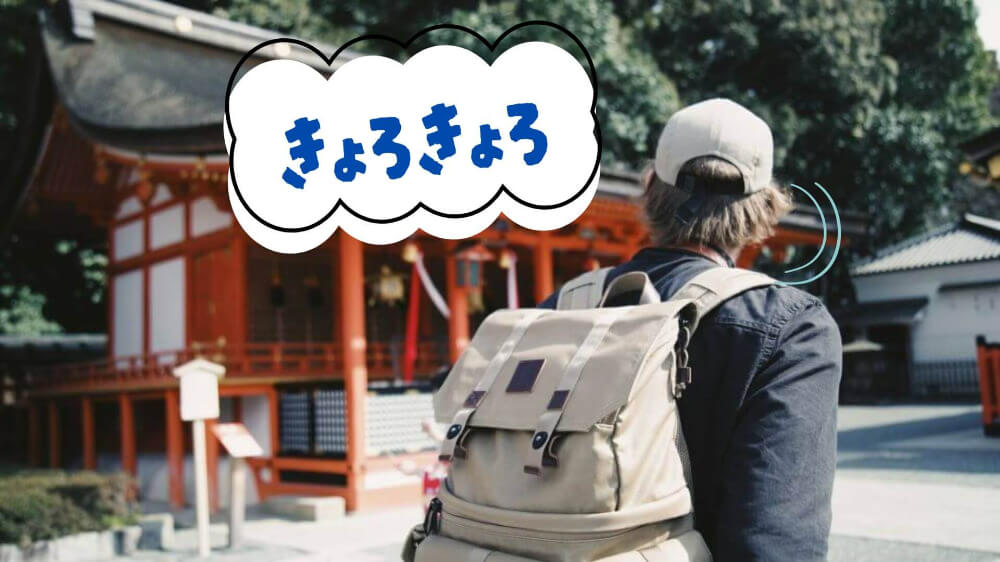
Onomatopoeia is also used to describe the actions and states of humans and animals.
| Onomatopoeia | Pronunciation | Meaning |
|---|---|---|
| きょろきょろ | kyoro-kyoro | Looking around restlessly or curiously. |
| ペコペコ | peko-peko | Feeling very hungry or bowing repeatedly in politeness. |
| うろうろ | uro-uro | Wandering aimlessly or loitering. |
| にこにこ | niko-niko | Smiling happily and pleasantly. |
| バタバタ | bata-bata | Moving busily or noisily, often in a rushed manner. |
| パクパク | paku-paku | Opening and closing one’s mouth quickly, often while eating. |
| うとうと | uto-uto | Dozing off lightly or nodding off. |
| ふらふら | fura-fura | Staggering or wobbling, usually due to fatigue or dizziness. |
| のろのろ | noro-noro | Moving slowly or sluggishly, lacking speed. |
| ダラダラ | dara-dara | Moving lazily or sluggishly, often implying idleness. |
Examples:
- お腹がペコペコだよ! – I’m starving!
- あやしい人が公園でうろうろしている – A suspicious person is wandering around the park.
- 旅行の準備でバタバタしそうだ – I’ll be busy preparing for my trip.
Emotions or Psychological States
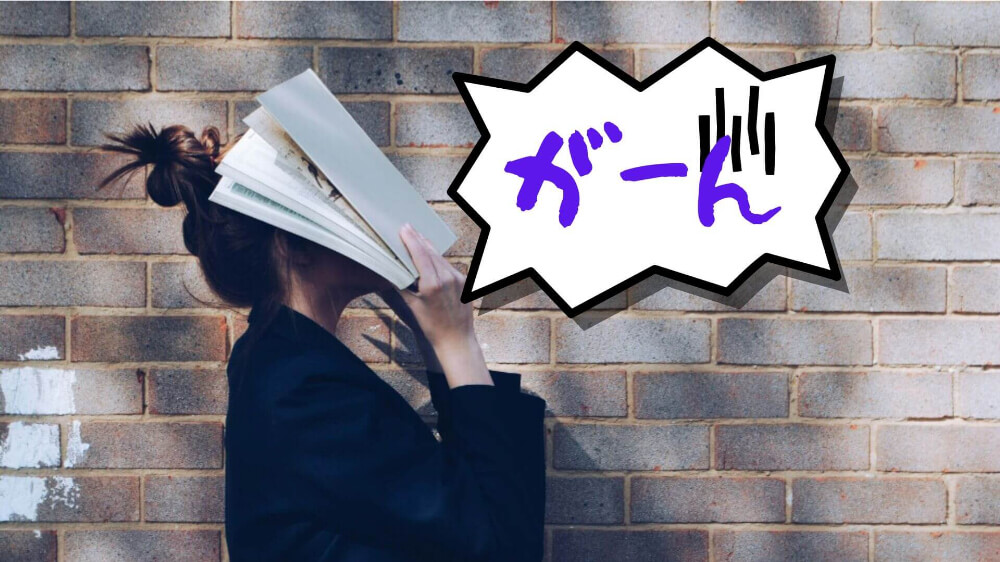
Onomatopoeia is frequently used to express emotional states.
| Onomatopoeia | Pronunciation | Meaning |
|---|---|---|
| ドキドキ | doki-doki | Heart pounding with nervousness or excitement. |
| イライラ | ira-ira | Feeling irritated or frustrated. |
| そわそわ | sowa-sowa | Feeling restless or anxious about something. |
| わくわく | waku-waku | Feeling excited or thrilled with anticipation. |
| もやもや | moya-moya | Feeling unclear, uneasy, or bothered. |
| がっかり | gakkari | Feeling disappointed or let down. |
| くよくよ | kuyo-kuyo | Worrying or brooding over something small or insignificant, feeling uneasy or restless about past mistakes. |
| ひやひや | hiya-hiya | Feeling nervous or anxious about a potential danger. |
| きゅん | kyun | Feeling a sudden surge of emotional excitement or affection. |
| うんざり | unzari | Feeling fed up or bored, often due to repetition or tedium. |
Examples:
- 緊張でドキドキが止まらない – My heart keeps pounding due to nervousness.
- 明日は遠足だからわくわくしている – I’m excited because tomorrow is the school trip.
- 先生はいつもイライラしている – The teacher always seems irritated.
- 彼の笑顔に胸がきゅんとなった – His smile made my heart skip a beat.
The onomatopoeic words listed above are just a small sample, yet they represent key onomatopoeic expressions that appear in various situations. Onomatopoeia is a symbolic expression form of Japanese, widely utilised in various situations. It enriches the sound and nuances of words, making communication more vibrant. Let’s dive into the mysterious and profound world of onomatopoeia.
